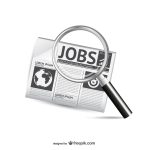You’ve probably heard it before that more generationally successful people and ideas are created during a recession; A time when most people are fearful and careful with their financial decisions; a time when most people spend their time either wondering when all this will end or escaping from the situation with entertaining activities. This happens to be the same time the world ushers in the best of us. If you are curious to learn why some of the best human creations and innovations are achieved during and after an economic recession, then continue reading this article.
Throughout history more successful people and ideas are created after a recession and economic crash than any other time. Successful people in this context are global-thinkers with breakthrough ideas, billionaires and highly successful businesses. First, let me mention some examples here:
- The Black Death
In the 1300 AD, a plague originating from China transmitted by fleas living on rats, known as Black Death swept across the entire world; from Europe, Asia to North Africa. The plague wiped out about half of the population of any area it infected.
Before the plague, Europe was governed by a feudal order; a system based on a hierarchical relationship between the king and the lords beneath him, with the peasants at the bottom. The king owned the land and grants it to the lords in exchange for military service. The lords then allocated land to peasants for unpaid labour, fines and taxes.
After the plague, there was a massive scarcity of labour which shook the foundation of the feudal order. The peasants seized the opportunity to demand wages for their work instead of working as slaves. And they got what they wanted. This marked the beginning of the middle class. The ensuing effect of the plague brought about a critical junction in history that disrupted the existing political and economic balance in society.
An economic recession or a pandemic, such as we face today, create a common enemy in the society and places everyone on almost equal opportunity to renegotiate their social status. When everything comes crashing down, it often presents an opportunity for people to start afresh and demand more out of life. Whether you take advantage of this opportunity is up to you.
- Dot Com Bust
Apple wasn’t in good shape as it headed into the 2001–2003 recession. The company’s revenue fell 33% in 2001 over the previous year. Apple increased its Research and development expenditures by 13% in 2001and maintained that level in the following two years.
The result: Steve Jobs’ Apple brought the first-generation iPod to market in October 2001, in the wake of the dot-com bust. Though the device’s $399 price tag was hardly recession-friendly, 600,000 people bought one by the end of 2002. That number rose to 2 million a year later. The iPod wasn’t created because of the recession’s hardships but the huge sales were evidence of consumers looking for relatively cheap enjoyment during that time: an iPod was less expensive than a stereo, going to concerts, or buying a TV.
During a recession and in the cause of recovery, people’s spending behaviour changes. The smart ones who are able to identify this change and provide alternatives for services or product that people need to end up creating enormous success.
- SARS epidemic 2002
Alibaba was founded in 1999 as an online marketplace for Chinese firms looking to sell their goods to other businesses around the world. But in 2002, the SARS-associated corona virus outbreak began to take hold in southern China. It would soon spread across the country and the world. As SARS turned into a pandemic in 2003, it presented a major challenge to China’s economy — including Alibaba — as the country’s manufacturing sector suffered from factory closures, with workers staying home, while retail sales also dropped significantly with consumers reluctant to go out to stores.
The quarantine came just as Alibaba was preparing to launch Taobao, an online marketplace for consumers that Jack Ma, the company founder, hoped would compete with eBay in China. However, what looked like a worst-case scenario turned out to have a silver lining.
Jack Ma encouraged his staffs to work from home, ensured the business continued and finished building the consumer-focused Taobao website, which was scheduled to launch within just a week from the start of the quarantine. Alibaba launched the Taobao site on time, in May 2003. By that point, people across the country were staying home from work out of fear of contracting SARS. Chinese consumers who were stuck at home started turning to the internet to order items. Alibaba benefited from the internet becoming increasingly necessary for doing business during the SARS outbreak, as businesses and consumers were driven online to buy and sell goods.
By 2006, Taobao had a larger share of China’s online auction market than eBay. Today, Taobao has over 600 million monthly users, and it’s helped turn Alibaba into one of the world’s largest e-commerce companies, with over $56 billion in annual revenue.
Again, this reinforces the lesson that during an economic recession and in the cause of recovery, people’s spending behaviour changes. People’s attitude towards life also changes. People that capitalize on these changes and position their career or business to provide the needed service or product, end up recording outstanding results.
- The Great Plague
Isaac Newton was in his early 20s when the Great Plague of London hit in 1665. It was one of the last major outbreaks in the 400 years that the Black Death ravaged Europe. He was just another college student at Trinity College, Cambridge.
In 1665, there was a version of “social distancing”. Cambridge sent students home to continue their studies. The year-plus Newton spent away was later referred to as his annus mirabilis; that is the “year of wonders.” It was in this period he wrote the paper that became early calculus. His bedroom experiment birthed his theories of optics. And right outside his window, an apple tree inspired him to come up with the theory of gravity and motion. Newton returned to Cambridge in 1667, with his theories in hand. Within six months, he was made a fellow; two years later, a professor.
A recession, and in this case a lockdown, is the best time to reinvent yourself. This current crisis will pass. Life will return back to normal or maybe a little away from normal. The question then is, “will you come out of your cocoon with renewing ideas and personality?” or “will you be the same old you?”
General Electric, General Motors, IBM, Disney, HP, and Fedex all started or reborn through a recession. The financial crises of 2008 also produced its own disruptive side effects. Airbnb and Uber shot up in popularity across the west as the subprime crises meant lower savings and income for the masses, forcing people to share assets in the form of spare rooms and car rides in order to cover for the deficit.
What are the lessons for you?
During this 2020 pandemic, once you look back through history, you won’t panic as much. You get worried only when you’re so wrapped up into thoughts like “How long is it going to last?”, “It feels like it’s going to last forever!” If there is one thing these businesses and people who came out greater through a recession have in common, it’s that they believed and acted like there are life and opportunities after the recession. So they prepare for and took advantage of the downtime as well as the uptime.
Making the most of a recession is more than just investing money into cheap stocks. Like Sir Isaac Newton, it’s just as much about becoming the best version of you.
Use this lockdown period to position yourself to ride the wave of opportunities that are and will present themselves through this recession. The most successful people do more than survive a downturn. They position themselves to thrive during the subsequent upturn. What’s one lesson you have learnt from this post? Please in the common section below. Now is a good time to subscribe to After School Africa. We will be sharing more helpful insights like this in the coming week. Until next time, YOUR SUCCESS MATTERS!








